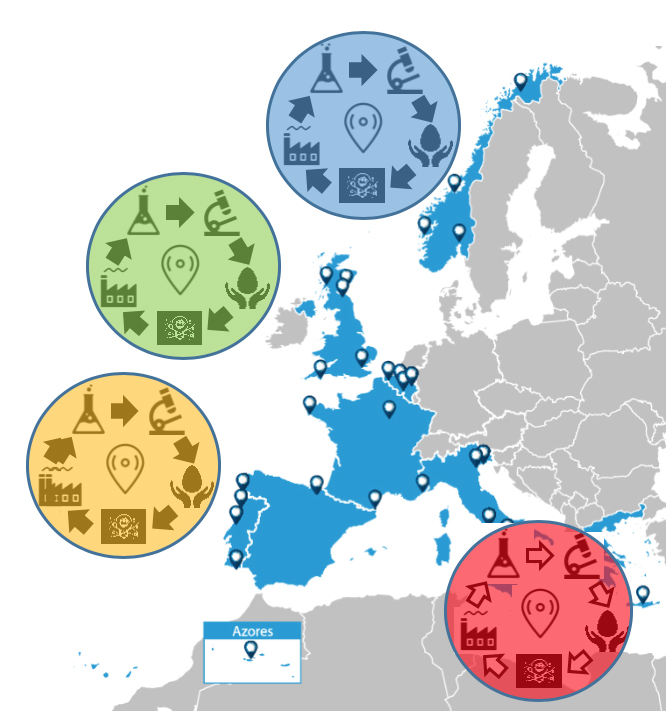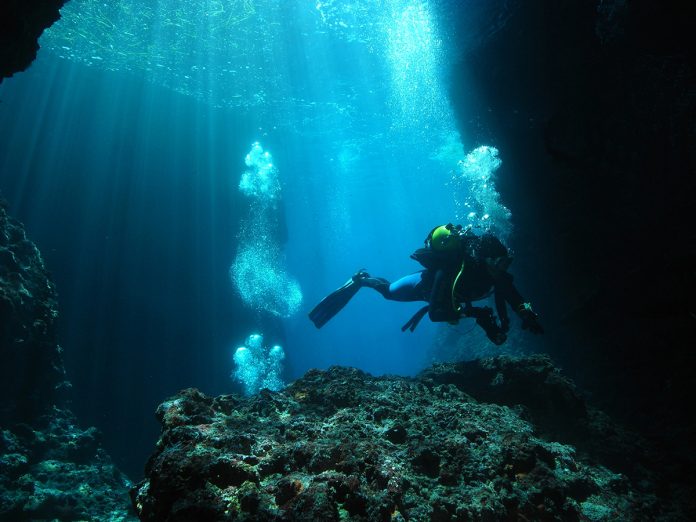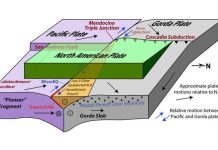Here, the EMBRC-ERIC (European Marine Biological Resource Centre) explores the need to develop research activities by focusing on innovation ecosystems
As research develops with augmented knowledge and understandings, scientists are becoming increasingly specialised and the need for interconnectivity between a variety of diverse disciplines, such as biology, ecology, and structural and analytical chemistry, is more crucial than ever before. Communication and collaboration between scientific specialisations and companies at the regional level is essential to harness the industrial and innovation potential of Europe’s maritime regions.
To support the alliances that lead to discoveries and positive impacts on our environments and ourselves, research facilities, such as European Research Infrastructures (RI), have been developed. RIs are sector specific; they provide the resources and services necessary to support and advance research and foster innovation in their given field. The European Marine Biological Resource Centre (EMBRC-ERIC) is a distributed research infrastructure that supports research in the fields of marine biology and ecology. With a network of renowned marine biological stations and institutes across Europe, EMBRC is able to provide access to marine organisms, marine ecosystems, and the facilities necessary to study them.

Marine biological resources have become major targets for the biotechnology sector, with application in fields such as aquaculture, production of food, nutraceutics, pharmaceutics and cosmetics, agronomy, and environmental health assessment. Each marine station that makes up the EMBRC consortium has connections to its region and government at local level. Biotechnology is a growing sector in many peripheral maritime regions, composed mainly of start-ups, small and medium enterprises, and only a few larger companies. This sector is thus of growing importance economically, while also being a source of high-value jobs in regions that traditionally have been less developed from a technological perspective.
The resources that EMBRC brings to its users have the potential to enrich both industry and the regions where EMBRC facilities are located. To build up the socioeconomic potential of the maritime regions of Europe, EMBRC emphasises marine biodiversity as an important resource for industrial applications in the health, food, energy and environment remediation sectors. Companies recognise the potential of blue technologies and bio-economy, though they may lack the tools and resources for the research that needs to be developed in the marine field. EMBRC pools resources and skills, offering access to expertise, facilities, and equipment that many SMEs cannot afford, enabling them to innovate and bring new products to market. Furthermore, as a platform for public and private collaboration, companies receive access to research activities best performed by academia which complement private-sector research, accelerating the development of the blue bioeconomy.
In order to enable the regional innovation ecosystems, EMBRC is working to link researchers, companies, science parks, and company incubators around its platforms and facilities. These maritime regions which boast RIs and stimulate their use through local grants are thus beginning to act as catalysts to attract companies and investment. Such activity enables research that was not previously possible and results in higher visibility for the regions. The onsite expertise and resources offered by EMBRC are important for solving problematic bottlenecks and help develop the economy of the regions themselves. Integrating the RI at the local level increases the socio-economic impact of the RI by becoming a cornerstone of local economies.
Enabling local innovation ecosystems leads to the reduction of gaps in research that exist today. Maritime regions are given a boost in their activities and, in return, provide resources to companies and research infrastructure, which in turn, increases the local innovation potential. Furthermore, the international nature of the RIs gives the potential for the mobility of knowledge across disciplines. The transfer of technology developed in the region not only has the capability to increase but also has the potential to spread across multiple regions and countries, creating new synergies, co-operations, and markets, giving the regions potentially global reach.
Please note: This is a commercial profile











